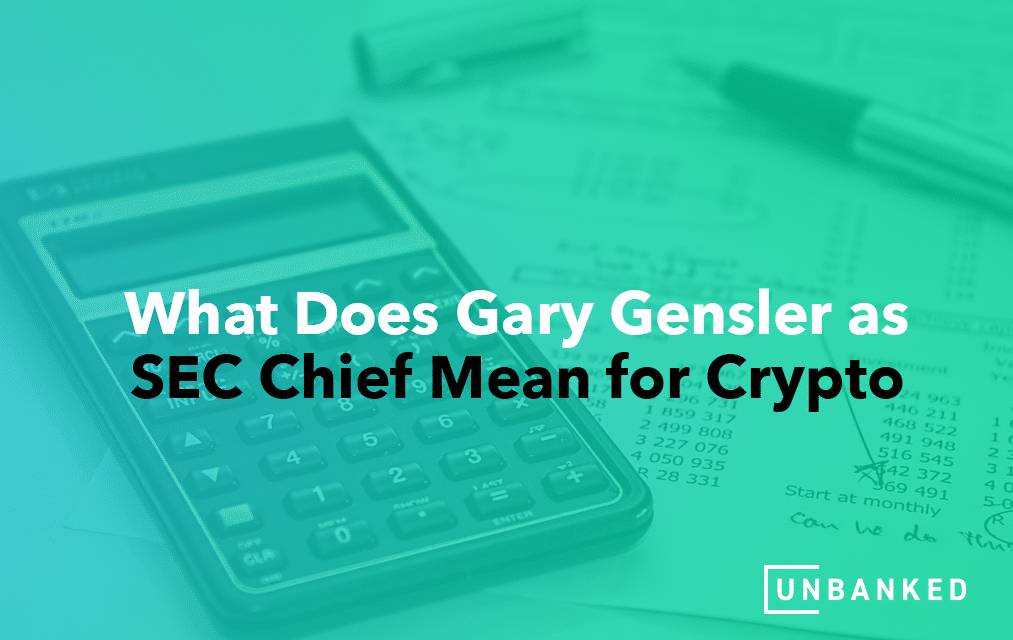In April 2021, the US Senate voted for Gary Gensler as the new chair of the US Securities and Exchange Commission (SEC), an independent US agency created to protect investors and maintain fair and orderly markets. Before that, he was a Professor at MIT where he taught blockchain technologies. Gensler, 63, a graduate of The Wharton School at the University of Pennsylvania, has a background in blockchain technologies and financial industries and he has served in several government and private organizations.
He spent 18 years at Goldman Sachs where he established himself as a partner at the Mergers and Acquisitions Department. He also spent several years as the Chairman of the Commodities Futures Trading Commission (CFTC) where he is credited for bringing a derivative industry, which caused the 2008 financial crisis, to order. He also played an important role in drafting the Dodd-Frank Act – legislation created in response to the 2008 financial crisis. It was a huge piece of legislation that governed the workings of the financial industry post-crisis. Gensler combines the experience of Wall Street, government regulation, and the new technologies of cryptocurrencies and blockchain.
Given Gensler’s background and experience, it seems like he is good news to the crypto industry. He might be able to relax the stringent regulatory framework that has been harsh in accommodating blockchain and cryptocurrency technologies. On several occasions, he has praised cryptocurrency as an instrument of change, but he emphasized that its growth should not be at the expense of investors’ protection. He has advocated for regulation of the $1.3 trillion digit asset industry, which is largely unregulated at the moment. It might be the perfect time for the SEC to consider the development of a framework that is more inclusive and accommodating for the new technology.
Bittersweet Crypto
Gensler has adopted an alternate approach while talking about cryptocurrency. He has compared the crypto market with the “wild west” and urged Congress to give the SEC more authority to regulate the industry. The only way to make crypto mainstream is tighter and stricter regulations to protect the investors against the increasing amount of fraud that plagues this industry.
Gensler believes that digital assets like cryptocurrencies have the potential to boost the US economy. He has suggested that regulating cryptocurrency exchanges is the best way to regulate cryptocurrencies in the US. The problem with crypto regulation has been that most regulators think of Bitcoin as a commodity rather than a security, which puts this digital asset outside the regulatory ambit of the SEC. Gensler, however, has maintained a different stance saying that the SEC can manage decentralized finance lending as it offers a specific interest-rate return.
During the 2021 Aspen Security Forum, Gensler said that digital assets must adhere to the public policy goals of financial markets. These goals include investor protection, fair markets, and facilitating capital formation. In crypto markets, investors are not able to get rigorous, complete, and balanced information to make a judgment about a security. With the SEC entering the regulation arena, crypto companies and funds might be obligated to provide more information to their investors.
Crypto Tokens and Securities
Previously, a lot of security tokens were sold to investors in the name of utility tokens. The SEC has always taken a firm stance against these kinds of tokens, taking action against people doing it. However, crypto enthusiasts have advocated for a new definition of securities that could fit the crypto industry. Gensler indicated that he would not change the existing definition of security tokens. This definition is outlined in the 1933 Securities Act and it has led to the closure of several high-profile crypto projects.
The Howey test, a US Supreme Court case, determines whether a contract, transaction, or scheme qualifies as a security or not. This is subject to disclosure and registration requirements under the US Securities Act of 1933 and the Securities Exchange Act of 1934. Gensler warned the crypto start-ups against using false tokens as securities as strict enforcement measures would be taken against them.
The SEC has little say over defining what is a security and what is not since Congress can make a real change. There are only a few cryptocurrencies that are identified as securities and thus, under the purview of SEC’s regulation. This tension can be clearly reflected in the ongoing case between Ripple’s XRP and SEC over the ambiguity of whether XRP is a token or a security.
What does Crypto look like with Gensler?
Gensler has both knowledge and experience in the financial industry, and therefore, it is expected that he would be a friend to the crypto industry. However, he alone cannot change the landscape of the crypto market in the US entirely. He is the chair of the SEC, and his primary role is to protect US investors. Gensler is, therefore, limited by the issues he can tackle around cryptocurrency.
Gensler has called for fraud protection in the cryptocurrency space as there are not many regulations concerning those who use crypto to fund terrorism and evade taxes. He envisages the SEC to be technology-neutral and not cripple innovation but supports technological growth under watchful governmental regulation. Gensler shows commitment to the growing technological advancements in the field of crypto, but at the same time, he also maintains that the real change can only happen with Congress’s intervention. It is believed that if Congress expands the ambit of legislation of the SEC, it will provide legitimacy, consumer protection, and integral stability to the cryptocurrency space and markets. Like Gensler’s work at CFTC, he is expected to bring order to the crypto ecosystem. He has both the knowledge and intention to stabilize the crypto ecosystem while preserving its potential to reshape financial innovation.
Major economies like China are already discussing ways to develop a cryptocurrency of their own. Under such circumstances, the US must not hesitate to institutionalize and stabilize the crypto market with better regulation. At Unbanked, we believe that cryptocurrency can be a catalyst for change and innovation in the financial sector. We are leveraging the power of blockchain technologies and cryptocurrencies to give our customers a unique crypto market experience. Visit us today to learn more about how we can help you enter the digital asset market.





